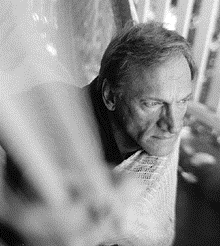local heroes
Phil Saviano
Founder of the Local Survivors Network of Those Abused by Priests
By Kristen Lombardi
Boston Phoenix
October 31, 2003
THE YEAR WAS 1992, and Phil Saviano had yet to become a prominent leader
in the movement for legal justice for victims of clergy sexual abuse.
Back then, the Jamaica Plain resident was having trouble just leading
his life. An AIDS patient, Saviano had grown emaciated and anemic. And
although he was taking the antiviral drug AZT, he was biding his time.
He had planned a funeral and drawn up a will. He had even procured a bottle
of sleeping pills — in case he wanted to "check out."
Amid this tango with mortality, he experienced a life-changing moment.
On December 17, 1992 — Saviano remembers the date as if it were yesterday
— he was reading the Boston Globe when he spotted something that startled
him: an article about a former Massachusetts priest molesting children
in New Mexico.
 |
The news brought Saviano back to 1964, when he was an 11-year-old boy
attending catechism classes at St. Denis Church, in East Douglas. That
was the year Saviano lost his innocence. It was the year St. Denis’s pastor,
Father David Holley, repeatedly forced Saviano to perform oral sex on
him. Three decades later, Holley was accused of raping children under
his priestly care in New Mexico, in the 1970s. (Holley is currently serving
an unprecedented 275-year prison sentence for child molestation.)
Saviano never forgot his childhood abuse at the hands of this Catholic
priest. At the same time, he never imagined that his perpetrator would
still be using the collar to prey on children. "It was unbelievable,"
he recalls. The revelation sent Saviano down a path that hundreds of clergy-sex-abuse
victims have traveled since the Boston scandal came to light, in 2001
— a path that Saviano blazed in 1992. As he puts it, "I saw that
I had the opportunity to do one last thing with my life."
And so, he went public with his story. He sought legal help from Boston
attorney Eric MacLeish, who now represents 250-plus alleged victims of
clergy abuse. And he filed the first priest-abuse lawsuit in Massachusetts
against the Worcester diocese, in which Holley had been a priest at the
time of Saviano’s abuse. By 1995, the diocese had offered to settle the
suit for $15,500. But on one condition: Saviano couldn’t talk about the
abuse ever again. Even his therapist had to agree to keep silent. Saviano
refused. "I couldn’t sign the agreement without feeling guilty about
being part of the Church’s big secret."
The decision left him alone — indeed, even his lawyer urged him to take
the deal. But then, for reasons he still doesn’t understand, the Worcester
diocese rescinded the gag order. In April 1996, Saviano became the first
Massachusetts victim to settle a clergy-abuse case without being consigned
to a lifetime of silence.
His push to hold Church leaders accountable for covering up the crimes
of priests might have ended here. But victims of the late priest John
Geoghan had begun stepping out of the shadows. Watching them come forward,
Saviano was reminded of how lonely he’d been when speaking publicly about
his abuse. He figured he could help. In 1997, he founded the New England
chapter of the Survivors Network of Those Abused by Priests (SNAP), which
is part support group and part legal-rights group.
In the ensuing years, New England SNAP grew from a handful of members
to more than 100. Saviano made strides counseling victims and lobbying
for child-protection laws. But he was rarely able to stir media interest
in the Church’s history of shielding child molesters. In 1998, he sent
information on accused Boston priests to the Globe — only to be told by
two reporters that the story was "old news." In 1999, he helped
ABC’s 20/20 dig up data on Church-run treatment centers — but the segment
never aired. Later that year, he convinced an Associated Press reporter
to attend a SNAP meeting and listen to victims. When the wire service
posted the article, only the Providence Journal picked it up.
Since the Boston scandal has blown wide open, of course, coverage of survivors
has exceeded his wildest dreams. And it’s propelled SNAP from a national
organization of only five chapters to one of almost 50. In New England,
membership has swelled to 400. Saviano steered the burgeoning group through
protests, press conferences, and counseling sessions until he found his
activism taking an emotional toll. Last year, he stepped down from his
leadership post in New England SNAP. He now runs the national organization’s
Web site.
Today, Saviano is a contented, middle-aged man in good health — a beneficiary
of anti-AIDS protease inhibitors. In retrospect, he credits his past decade
of activism to his once-failing health. After all, he’s been on borrowed
time. He’s had nothing to lose. And he wanted no regrets in life.
Of the bottle of sleeping pills he procured in 1992, Saviano says, "Can
you imagine if I had checked out? Think of all that I would have missed."
Indeed. And think of all that we would have missed without his leadership.
Any original material on these pages is copyright © BishopAccountability.org 2004. Reproduce freely with attribution.